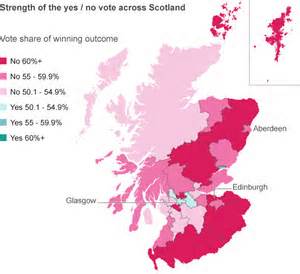Murdo Ritchie (RCN) gives his take on the situation we face immediately after the referendum. This was first posted on Murdo’s blog at http://murdoritchie.blog.co.uk/2014/09/23/letter-to-the-momentarily-disheartened-19453755/

It IS a wonderful campaign. David Cameron, Ed Miliband, Nick Clegg and Gordon Brown are deluding themselves if they really believe the Prime Minister’s press statement that, “now the debate has been settled for a generation or as Alex Salmond has said for a lifetime.”
I’ve met a number of people from the Yes campaign who appear depressed, but I doubt this will last. I never believed it would come near fifty per cent, so I’ve never been disappointed. Indeed I’m amazed that forty-five per cent of a high turnout were prepared to abandon their primary legal national identity to create a fairer Scotland. That’s a big number; that’s a big 1.6 million strong army.
This was a lesson in how real power works. First they dismissed any idea that anything was happening. Then they panicked and made promises they can’t keep. Lots of ancient political hacks leap-frogging over each other to be the “leader.” And, yet, it was nowhere near what they could have done to scupper the movement.
The Yes camp wanted a new, better country. Instead they’ve been offered nickel-and-dime administrative reform. This will not meet that demand. I don’t think even Gordon Brown or the Daily Record can order the Conservative coalition cabinet to make the changes that were wanted.
The last few weeks saw the reactionary mobilisation of businesses threatening to close businesses or increase prices, securocrats making threats, and a mobilisation of the frightened, the contented and the comfortable. This went beyond the “middle classes” but involved the people on good pensions who were easily frightened by a leap into the unknown. When the frightened, the comfortable and the contented become an entity’s political base, meaningful change becomes difficult. However, it is not a very strong basis for the No campaign either.
Large numbers of fora across Scotland have not just answered the question Should Scotland be an independent country but asked the bigger one, what kind of country do I want? This is a process that doesn’t finish after the polls closed. I’m told the Edinburgh Radical Independence Campaign couldn’t hold their meeting in the hall they’d booked because so many people turned up. Instead a hundred and twenty people had to hold a meeting on The Meadows.
This referendum has revealed that the United Kingdom state is unreformable. That isn’t just true for Scotland but for all the people of England, Wales and elsewhere. This will reveal itself as attempts at constitutional reform are cobbled together only to create even more problems. The status quo, even the modified status quo has been found wanting. Labour, as well as much of the so-called left, have revealed their “inner conservative” natures and shown how hostile they are to any, even small changes. That lesson has not been lost on large numbers too.
Throughout the entire campaign, I never saw Better Together campaigning until the Tuesday before the vote in Helensburgh. They were invisible in Glasgow because they would have simply been denounced as Tories in other garb. It became a straight Yes Campaign fight with the Labour Party.
In a lot of ways the No camp may have won the ballot but they have shown themselves as people determined to make only the smallest of changes. They have revealed themselves to be conservatives with a small “c”. But it’s on this foundation that the edifice of real conservatism is built.
The Labour Party is now swirling down the plughole behind the Liberals and the Tories. It is clear that Better Together won’t end now the referendum is over. It will be carried over into the Scottish Parliament and a Grand Coalition of Labour, Tories and Lib-Dems becomes foreseeable.
Hegel says somewhere that an entity only becomes real when it divides. This division has pushed real issues onto the agenda. It’s made people take choices. That’s why I’m enjoying this division. It will not be so easy to return to the days of tugging forelocks, keeping quiet, and loyally and unquestioningly voting Labour. I agree with Deborah Orr in the Guardian, the three main parties really hated this process.
Scotland has learned that there are real gains to be made when difference, divergence and division are openly stated and properly respected. Perhaps the suffocating conformity that has characterised the country with its past of prohibitory Calvinism and Catholicism, social uniformity and deference to our political masters is coming to its end.
The defeated feel victorious; the victorious know they have been defeated.
I now believe that Scottish national independence is inevitable
